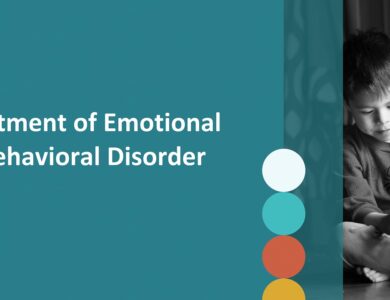
Many pregnant women experience eye twitching or eyelid spasms at some point during pregnancy. While mostly harmless, eye twitching can be annoying and concerning. Understanding the common causes, signs, and remedies can provide relief for pregnant women dealing with this irritating symptom.
What Causes Eye Twitching During Pregnancy?
There are several possible causes for eye twitching during pregnancy:
Hormonal Changes
Pregnancy brings a surge of hormones that can cause muscles and nerves to behave erratically. Hormones like estrogen and progesterone are often to blame for twitching and spasms. These hormones stimulate muscles, nerves, and blood vessels throughout the body, including around the eyes. The hormonal rollercoaster of pregnancy is likely the number one culprit for eye twitching in pregnant women.
Fatigue and Stress
Carrying a growing baby is tiring work. Pregnancy fatigue, lack of sleep, and increased stress can cause eye-twitching episodes. When the body is overly tired or stressed, the muscles involuntarily spasm and twitch more frequently. Getting adequate rest and managing stress can help minimize twitching.
Eye Strain
Straining or overusing the eye muscles can trigger twitching. Pregnancy hormones also make women’s eyes dry, leading to additional strain. Activities like excessive screen time, reading, driving, or needing vision correction can worsen eye strain.
Nutrient Deficiencies
Being deficient in certain vitamins and minerals is another possible cause. Pregnant women have increased nutrient needs, so deficiencies in magnesium, vitamin D, vitamin B12, or calcium may develop. Supplementing with a good quality prenatal vitamin can prevent twitching due to nutritional deficiencies.
Caffeine Intake
Consuming too much caffeine from coffee, tea, soda, or energy drinks can stimulate muscle fibers around the eyes and cause twitching. Limiting caffeine intake is advised, especially larger amounts consumed close together.
Signs and Symptoms of Eye Twitching During Pregnancy
Here are the most common signs and symptoms of benign eye twitching during pregnancy:
- Involuntary, repetitive spasms of the eyelid muscles
- A sense of movement in the eyelid, often upward toward the brow
- Sporadic or episodic twitching that comes and goes
- Episodes lasting from a few minutes to a few hours or days
- Twitching that may switch between eyes or affect both eyes
- Irritation, twitching, or fluttering sensation in the eyelid but no actual visible movement
- Worsened by fatigue, eye strain, caffeine, or stress
- Not accompanied by other vision changes like blurriness, pain, or discharge
While annoying, pregnancy-related eye twitching is harmless in most cases. However, if more serious symptoms arise like vision changes, eye pain, headache, or discharge, contact your doctor promptly. Let your provider know if the twitching becomes chronic or excessive throughout your pregnancy as well.
Home Remedies and Lifestyle Tips to Find Relief
Here are some simple, natural ways pregnant women can soothe eye twitching at home:
Rest Your Eyes
Give your eyes frequent breaks if you’ve been staring at a screen, reading, driving, or doing other visual tasks. Close your eyes and relax them for 10-15 minutes as needed to reduce strain.
Use Warm Compresses
Placing a warm, wet washcloth over your closed eyelids for 10-15 minutes can relax the eye muscles and provide symptom relief.
Try Eye Exercises
Gently roll your eyes in a circle, side to side, up and down. Do this several times in each direction without straining. Then close your eyes and move them beneath your eyelids left, right, up, and down. Repeat a few times daily.
Stay Hydrated
Dehydration can worsen muscle twitching all over. Drink plenty of water and healthy fluids like fruit juice, coconut water, or electrolyte drinks.
Limit Caffeine
Cut back on caffeinated coffee, tea, soda, and energy drinks which can stimulate eye muscles. Limit to 200mg or less of caffeine per day.
Take Breaks from Screens
Avoid prolonged computer use, video games, tablets, phones, and TV. Follow the 20-20-20 rule – every 20 minutes, look away about 20 feet in front of you for 20 seconds.
Use Lubricating Eye Drops
Pregnancy hormones can dry out the eyes. Use over-the-counter lubricating drops as needed for temporary relief. Limit use to no more than 4x daily.
Practice Relaxation Techniques
Try meditating, deep breathing, yoga, listening to calming music, or visualization to manage pregnancy stress. Keeping stress minimal may lessen muscle twitching.
Get More Magnesium
Ask your doctor about taking a magnesium supplement or increasing magnesium-rich foods like spinach, almonds, avocado, beans, yogurt, or banana. Magnesium relaxes muscles.
Adjust Sleep Habits
Get more nightly shut-eye to combat fatigue. Nap during the day if possible. Sleeping in a cool, completely dark room may also promote better rest.
Use Cold Therapy
Apply a chilled gel eye mask or cold compress briefly to the twitching eyelid as needed to calm the muscle spasm.
Professional Treatment Options for Eye Twitching During Pregnancy
If self-care measures don’t provide relief, talk to your OBGYN or eye doctor about other treatment options that are safe during pregnancy:
- Botulinum toxin injections– In severe, stubborn cases, botox injections can temporarily paralyze the muscles to stop twitching. Effects last about 3 months. Use minimal doses to avoid paralysis spreading.
- Prescription eye drops– Medicated eye drops like Xiidra or Restasis can help reduce dryness and irritation. Use only as directed.
- Vision correction– Properly fitted glasses or contacts can alleviate strain. Be sure to update your prescription.
- Alternative therapies– Gentle massage, acupuncture, chiropractic adjustment, or craniosacral therapy may calm twitching originating from misalignment or muscle knots. Communicate your pregnancy to the practitioner.
- Medications– Oral magnesium or calcium supplements may be suggested, but always check with your OBGYN first for safety. Some anti-seizure medications help twitching but are typically avoided during pregnancy unless severe and refractory twitching occurs.
In the majority of cases, eye twitching during pregnancy is not harmful and can be managed with self-care until it resolves on its own postpartum. But inform your OBGYN if twitching becomes severe or vision changes develop. Prompt treatment will provide relief and ensure the health of both you and your baby.
Frequently Asked Questions About Eye Twitching During Pregnancy
Here are answers to some common questions pregnant women have about experiencing eye twitching:
Is eye twitching during pregnancy normal?
Yes, occasional eye twitching is common and normal in pregnancy due to hormone fluctuations, fatigue, strain, and other factors. It affects many pregnant women at some point but is not a cause for concern in most cases.
When does eye twitching occur most frequently during pregnancy?
Eye twitching can happen anytime during pregnancy but is more common in the second and third trimesters as hormone levels rise and women experience more strain carrying extra pregnancy weight. First-trimester fatigue and nausea may also contribute.
Does eye twitching always affect both eyes?
Not necessarily. The twitching may come and go sporadically in one eyelid or the other. But it can sometimes alternate between eyes or affect both sides at once.
How long does pregnancy-related eye twitching last?
Individual episodes of eye twitching may only last a few minutes or persist for hours or days at a time. Some women experience sporadic twitching on and off throughout pregnancy that eventually resolves postpartum.
Can lack of sleep cause eye twitching while pregnant?
Yes, fatigue and lack of sleep are common triggers. Pregnancy insomnia and interrupted sleep can strain the eyes and contribute to twitching. Getting adequate nightly rest and napping can help minimize episodes.
Is eye twitching a sign of early pregnancy?
Eye twitching alone is not considered an early sign of pregnancy, as it more commonly occurs later on. However hormonal changes and fatigue in early pregnancy could potentially trigger some mild twitching episodes.
When should I worry about eye twitching during pregnancy?
Most cases of minor twitching are not worrisome. But contact your OBGYN promptly if twitching is excessive, constant, or accompanied by other vision changes, eye pain, swelling, or discharge that could indicate infection or a more serious problem requiring evaluation.
How do I stop my eye from twitching during pregnancy at home?
Home remedies like warm compresses, eye rest, proper hydration, magnesium, cold therapy, and stress management techniques may provide relief in many cases. Avoiding fatigue, strain, and caffeine can also help reduce irritating eye spasms.
Is there anything I can do to prevent eye twitching while pregnant?
While not always preventable, the best course is maintaining good prenatal nutrition, managing stress levels, getting adequate sleep, correcting any vision issues, and avoiding lengthy screen time or eye strain to minimize the risk of developing this annoying symptom.
Conclusion
Eye twitching and spasms are common but harmless annoyances many pregnant women experience at some point due to hormonal changes, fatigue, strain, and nutritional needs. Episodes are usually short-lived but can persist on and off. While frustrating, simple at-home remedies like warm compresses, eye rest, lubricating drops, and avoiding triggers can provide relief in most cases. But contact your doctor if twitching becomes severe or you experience any other vision changes warranting evaluation. Fortunately, pregnancy-related eye twitching often resolves naturally after delivery once hormones stabilize and pre-pregnancy energy returns. With proper self-care, most women can manage temporary bouts of eye twitching and continue enjoying a healthy pregnancy.
Mustafa Al Mahmud is a passionate medical writer and health enthusiast. He is excited to share his knowledge and make reliable health information more accessible through Quick Medico. Mustafa aims to write about common diseases, medications, wellness topics, and the latest health research in easy-to-understand language. He believes clear and accurate health communication empowers readers to take charge of their well-being. In his free time, Mustafa enjoys hiking, cooking, and spending time with his family.



